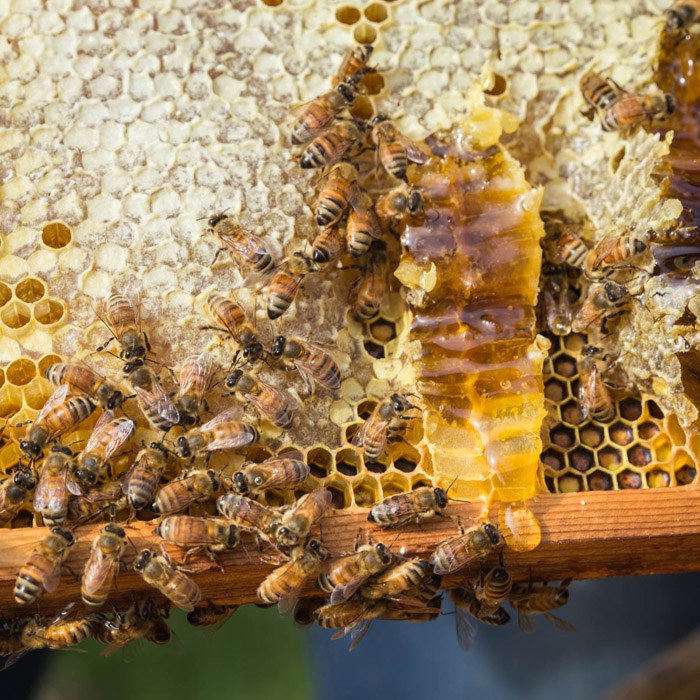Posted: September 27, 2017
Harrisburg, PA – Farmers, gardeners and other Pennsylvanians concerned about the health of pollinators given their critically important role growing and producing food now have the chance to comment on a draft of the state’s proposed Pollinator Protection Plan. The plan, developed by the Pennsylvania Department of Agriculture and Center for Pollinator Research at Penn State University is designed to protect bees and other insects that pollinate nearly 75 percent of the commonwealth’s food crops.
"The Pennsylvania Pollinator Protection Plan is a living document that will change over time as researchers and interested citizens share personal experience and best practices when it comes to protecting and expanding pollinator populations," said state Agriculture Secretary Russell Redding. "Pennsylvania is blessed with rich soils and a favorable climate that allow us to produce a variety of agricultural products, but we need bees, flies and butterflies to pollinate three quarters of our food crops."
The department and the Center for Pollinator Research developed the protection plan after the U.S. Environmental Protection Agency directed state agencies to develop pollinator protection plans to mitigate risk to honey bees and other pollinators. Pollinator populations have been on the decline in recent years due to a number of threats. According to Penn State, beekeepers reported a 52 percent loss in their colonies during the winter of 2016-2017. Additionally, 51 species of butterflies, 111 species of moths, and 3 species of bumble bees are considered to be at risk.
Each state is required to submit its own plan to EPA that provides technical advice to homeowners, beekeepers, farmers, non-agricultural landowners, businesses, organizations, government agencies, and the general public on how to improve and increase areas where bees and other pollinators can live safely, eat well, and thrive.
Agriculture relies on pollinators for human health and economic stability. Researchers at the University of Pittsburgh and Penn State determined that Pennsylvania growers gain more than $250 million in fruit and vegetable production due to increased yield as a result of pollination from insects, and an additional $9 million in value from crops where pollination produces seeds.
"Pennsylvania is the nation's fourth largest producer of apples, thanks in part to the work of about 235 species of bees found in our fruit orchards. It's easy to see the value of preserving and protecting the diversity of our pollinators," Redding continued. "Our apple harvest averages more than $124 million annually, so this plan is an integral part of maintaining our agricultural and economic viability in this and other fruit, vegetables and seed industries."
"Many of our favorite foods depend on bees, flies and others to transfer pollen between plants. They are critical to the success of our food supply," said Dr. Christina M. Grozinger, director of Penn State's Center for Pollinator Research. "If you enjoy strawberries, raspberries, cherries, plums, peaches or pears, you can thank these pollinators."
Grozinger encourages Pennsylvanians to review the first four chapters of the plan: "Introduction," "Best Practices for Forage and Habitat," "Best Practices for Pesticide Use," and "Best Practices for Beekeepers." The plan is available for review online at ento.psu.edu/pollinators.
After the comment period ends on December 15, 2017, the Pennsylvania Pollinator Plan's task force and advisory board will compile the public comments to create the fifth chapter, "Recommendations for Research, Education and Policy."
The plan was developed with input from 36 individuals representing 28 state and national organizations and stakeholder groups.
"I am very pleased with the final plan, which provides an outstanding framework for pollinator conservation and health in Pennsylvania and beyond," Grozinger added. "Members of the task force and advisory board have forged valuable partnerships, and our communities and our ability to feed a hungry world will be stronger for their efforts."
Learn more about the Pennsylvania Department of Agriculture's work to support the agriculture industry at agriculture.pa.gov.
MEDIA CONTACT: Bonnie McCann - 717.783.0133


